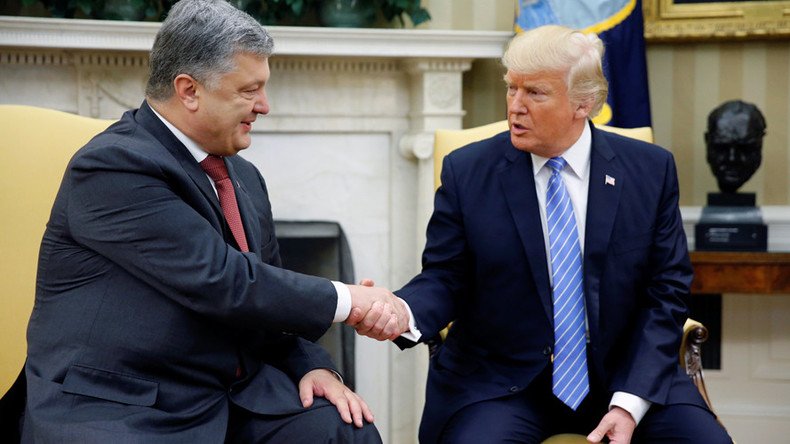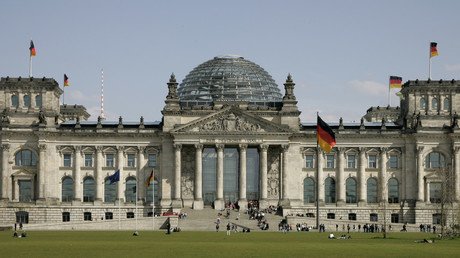US appoints ex-NATO envoy to handle Ukraine crisis

Washington has appointed former ambassador to NATO Kurt Volker as a special representative to Ukraine. The move comes less than three months after the US expressed doubt that the Ukrainian conflict was a point of interest for American taxpayers.
Volker “will take responsibility for advancing US efforts to achieve the objectives set out in the Minsk agreements. He will accompany the Secretary to Kyiv on Sunday, July 9, and is expected to continue to hold regular meetings with Ukraine and the other members of the Normandy Format: Russia, Germany, and France,” the State Department’s statement reads.
Volker, who was the US permanent representative to NATO in July 2008-May 2009, and is currently the executive director at a DC-based think tank, the McCain Institute for International Leadership at Arizona State University, was appointed a special representative to Ukraine on Friday.
“Volker will coordinate all State Department efforts to bring a resolution to the conflict created when Russia invaded Crimea and later eastern Ukraine,” R.C. Hammond, a communications adviser for Secretary of State Rex Tillerson, said, according to a report cited by Reuters.
Ukrainian leader Petro Poroshenko greeted Volker’s appointment on his Twitter feed.
Welcome the decision of the US Administration to appoint Kurt Volker a Special representative for Ukraine, following our arrangements
— Петро Порошенко (@poroshenko) July 7, 2017
During a short visit to Poland ahead of the G20 summit in Hamburg, Germany, this week – on the sidelines of which he met with Russian President Vladimir Putin for the first time – US leader Donald Trump called on Russia to “cease its destabilizing activities in Ukraine and elsewhere.”
The rhetoric is remarkably different from three months ago, when while at a G7 meeting in Italy Tillerson questioned why US taxpayers should be interested in Ukraine.
The Ukrainian crisis has become a particularly thorny issue in Russian-US relations since the Kiev government was overthrown in 2014. Kiev and its Western backers accuse Russia of supporting rebel forces in eastern Ukraine, who do not recognize the post-coup government. Moscow has denied the accusations.
Moscow has repeatedly said the Ukraine crisis is an internal conflict and that Kiev is not fulfilling its part of the Minsk agreements and refusing to negotiate with its own people in Donbass.
The US imposed sanctions against Russia, with the latest expansion in late June, after Russia’s reunification with Crimea following a 2014 referendum. Washington calls it an “annexation” and says that the sanctions will not be lifted until the peninsula becomes part of Ukraine again.
The situation in Ukraine and its resolution were expected to be on the agenda during the first face-to-face meeting between Putin and Trump in Hamburg on Friday.
Prior to the event, the Kremlin stressed that the meeting was “a great opportunity to repeat the Russian position” and emphasize the necessity to implement the Minsk agreements.
However, the Russian president would not have an opportunity to fully express his understanding of the Ukrainian conflict and its causes as the leaders would lack time, Kremlin spokesman Dmitry Peskov noted.













